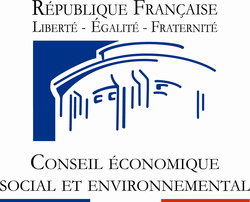The recent news
May 17, 2013
Thesaurus : 02. Lois
May 17, 2013
Thesaurus : 01. Conseil constitutionnel
April 19, 2013
Thesaurus : Doctrine

► Référence complète : Fabre-Magnan, M., La gestation pour autrui. Mythes et réalité, Fayard, 2013, 122 pages.
____
____
► Présentation générale de l'ouvrage :L’analyse menée ici sur la "gestation pour autrui" est avant tout juridique. Elle est analysée indépendamment de la question du mariage homosexuel.
Ayant rappelé que la gestation pour autrui est pour l’instant illicite en France, l’auteur analyse les revendications de légaliser cette pratique.
Pour apprécier cette perspective, Muriel Fabre-Magnan analyse tout d’abord les effets de la gestation pour autrui sur les mères. Les mères deviennent "incertaines", puisqu’il devient difficile de déterminer qui est la "mère", et qu’on finit par hésiter entre la mère génétique, la mère porteuse et la mère d’intention. Elle observe que les droits étrangers donnent le primat à l’intention et que les juges organisent - car il faut bien trancher - un déni de réalité physique. Mais le droit français, comme les pratiques, oscillent de l’un à l’autre critère.
L’auteur analyse ensuite les effets sur les enfants. Elle estime que ceux-ci deviennent des "produits". Alors même qu’on brandissait "l’intérêt de l’enfant", l’évolution du droit sapait celui-ci, en instrumentalisant l’enfant. L’enfant devient un moyen, à travers le "projet d’enfant", puis les enfants fabriqués pour être des médicaments ou être cédés.
April 17, 2013
None

Référence complète : Frison-Roche, M.A., Internet à partir d'une conception de la Régulation, Audition devant l'Institut Montaigne sur la question des marques et de l'Internet, 17 avril 2013.
April 17, 2013
None

Audition par la section des Affaires sociales et de la Santé du Conseil économique, social et environnemental, dans la perspective de son rapport et de son avis sur Les évolutions contemporaines de la famille et leurs conséquences sur les politiques publiques, 17 avril 2013.
Consulter les slides ayant servi de support à l'intervention

April 11, 2013
Organization of scientific events
La Régulation est plutôt liée à l'acte unilatéral, loi ou règlement. Regulation se traduit d'ailleurs par "réglementation".
Mais aujourd'hui, les contrats sont partout.
C'est pourquoi ce colloque annuel du Journal of Regulation est consacré au thème "Régulation et Contrat".
Pendant ce colloque, , des spécialistes exposent la pratique contractuelle en ce qu’elle a de spécifique dans tel ou tel secteur régulé, comme le ferroviaire, la banque, l’audiovisuel, le secteur des jeux ou de l’Internet. Puis des professeurs opèrent des "synthèses sur le banc" de ces exposés : il s’agit d’en tirer des observations plus synthétiques et abstraites, de comparer les secteurs, de les replacer dans les branches du droit et par rapport à la politique et à l’économie. Enfin, dans un troisième temps, des spécialistes abordent des questions plus transversales et thématiques.
Pour consulter le programme, cliquer ici.
Ce colloque donnera lieu à publication francophone dans la Revue de Jurisprudence Commerciale et à publication anglophone dans The Journal of Regulation.
April 11, 2013
Conferences

La manifestation donnera lieu à une publication en langue française par les soins de Thomson Interactive et en langue anglaise par les soins du Journal of Regulation.
Avant d’aborder des thématiques spécifiques au rapport entre le Contrat et la Régulation, des spécialistes exposent la pratique contractuelle en ce qu’elle a de spécifique dans tel ou tel secteur régulé, comme le ferroviaire, la banque, l’audiovisuel, le secteur des jeux ou de l’Internet. L’idée ici est de faire, avec d’autres collègues présents, une "synthèse sur le banc" de ces exposés : il s’agit d’en tirer des observations plus synthétiques et abstraites, de comparer les secteurs, de les replacer dans les branches du droit et par rapport à la politique et à l’économie.
Pour consulter le programme, cliquer ici.